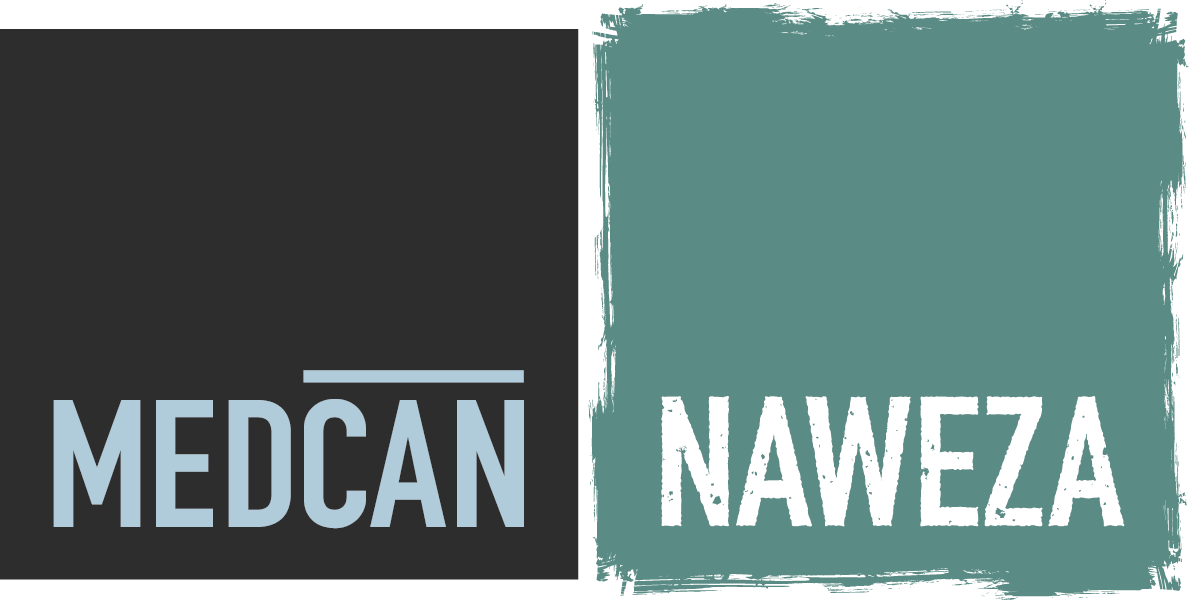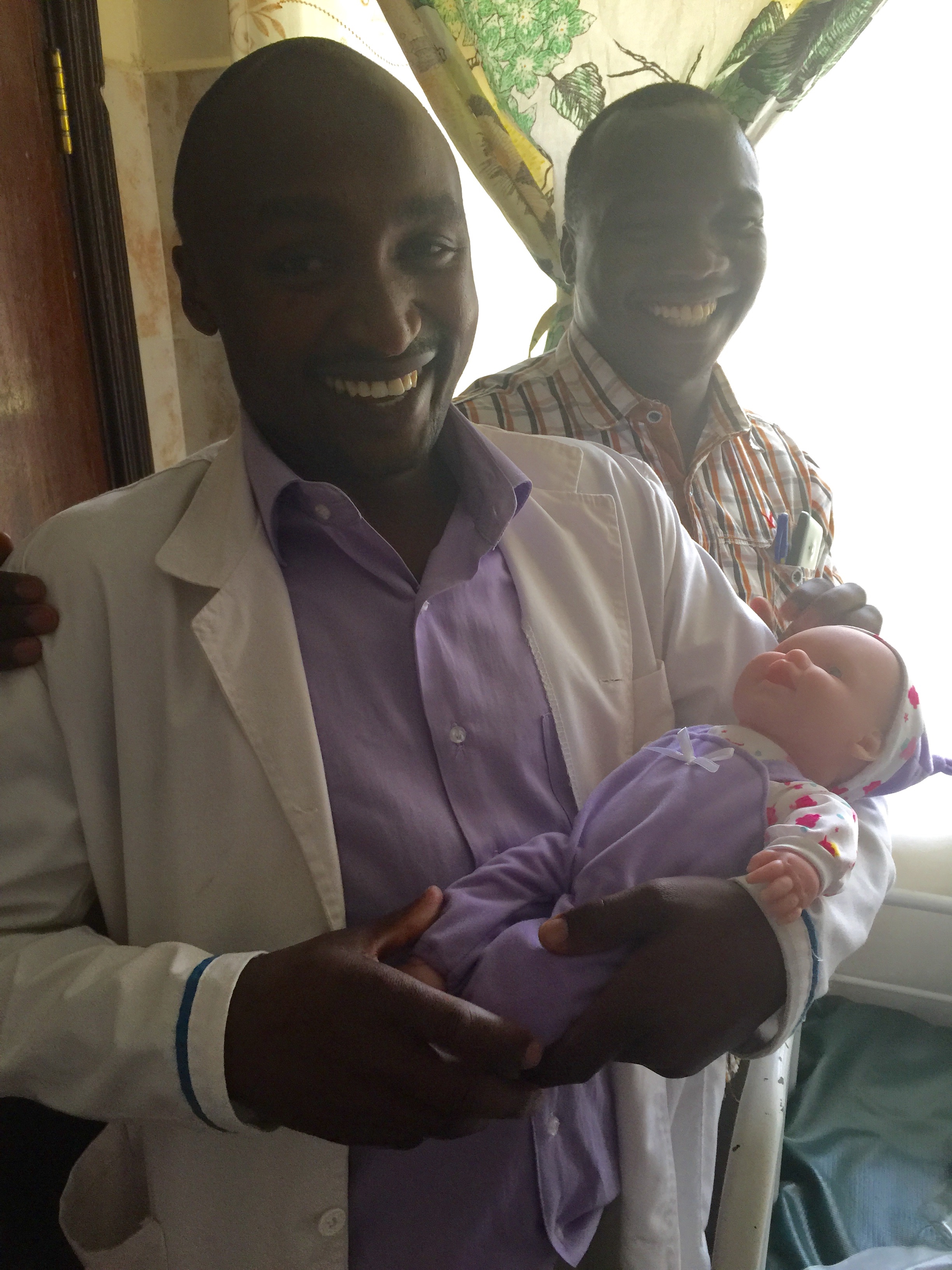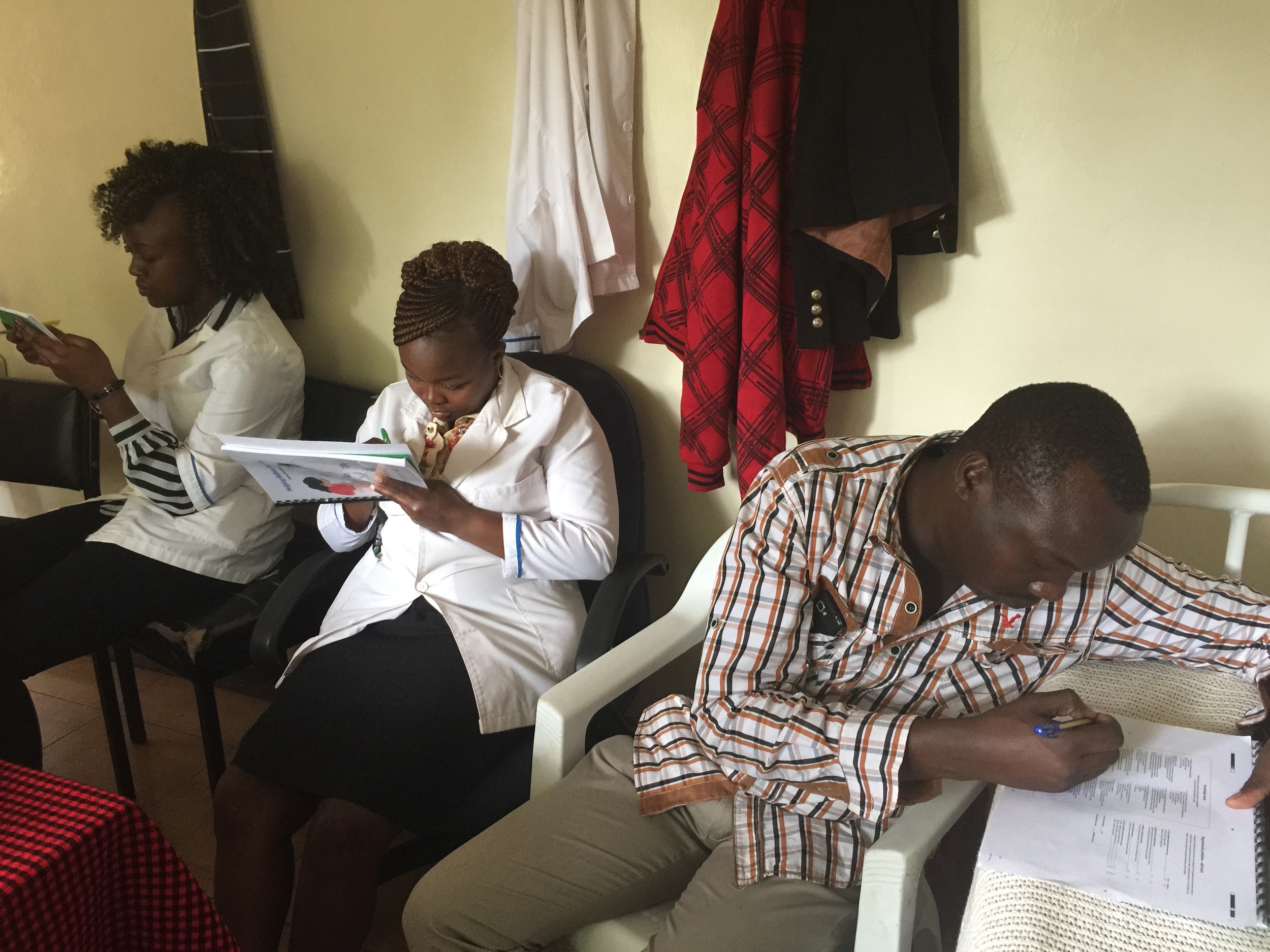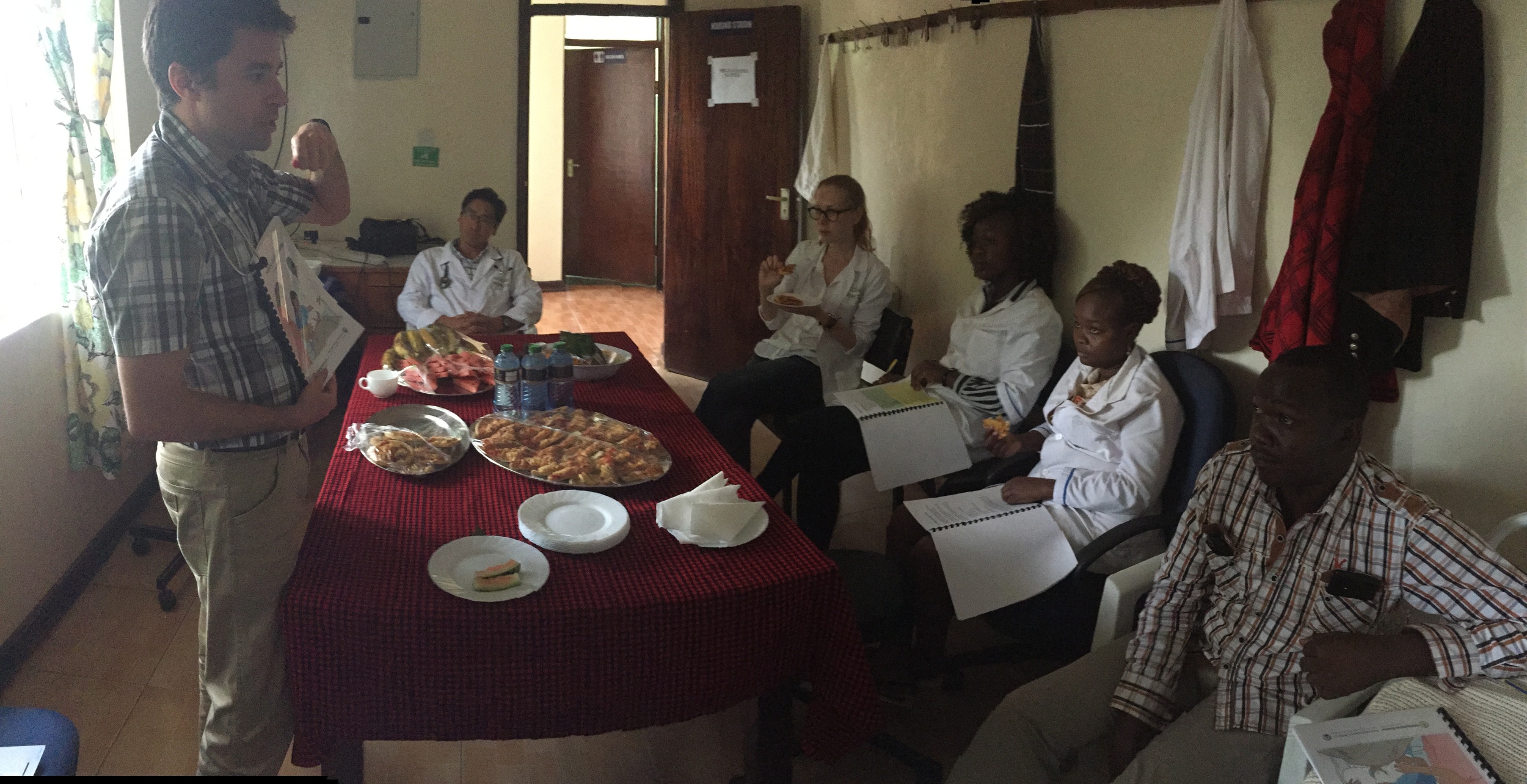Another busy day planned with the Fluorspar team. Most important on the morning agenda is post-op on the cataract patients who were operated on yesterday. They’ve all stayed the night at the clinic and a nearby facility to ensure next day follow-up. In fact, the surgery itself is only the half the journey. The patients must be measured the day after, at 2 weeks and at 6 weeks for visual acuity. Only at 6 weeks when we measure each patient’s visual acuity will we know for sure if the surgeries have been an overall success.
Cataract surgery patients lined up waiting to have their post-op check-up.
The patients were lined up outside, given a seat and some water while they are educated on proper post-op care. A demonstration is done on one of the patients to ensure they know how to put in the drops correctly and proper hygiene. It can’t be stressed enough the importance of the post-op protocol and the health workers take their time explaining and answering questions from the patients.
Wilson, the doctor assistant, gives a lesson to the patients on self-care and post-op care.
One of the patients then requested to lead the group in prayer. It is a very powerful and most touching moment watching these humble people pray for their blessings. I find myself praying that they follow their instructions for following the post-op procedure so that they regain and maintain their improved eyesight.
A cataract patient leads a prayer giving thanks for all of their blessings.
Dr. Sidiqa then measures their vision and will compare it to what it was prior to the procedure. She will also compare what it is at 2 weeks and 6 weeks. Only then will we know if this initiative is a success. If it does prove to be successful, then we will continue the program in a community we visit often on outreach and know that the people have a prevalence of cataracts. They live in the mountains are unable to come to the clinic. So the plan would be to do the screening in their community and then do the actual procedure at the clinic and provide the transportation to ensure safe travel.
Dr. Sidiqa conducting a post-op vision check on a patient. This man has done quite well with much improved eye sight.
After the post-op examination of the patients who had the procedure yesterday, the surgeons began the second day of cataract surgeries. Another 11 are planned for today. Those patients will sleep here and will be monitored and re-examined tomorrow to again, make sure all is okay.
Cervical Cancer Screening
Dr. Sue worked again with Rahema and Samuel in the cervical cancer screening room. They saw 26 patients today with one minor abnormality. They used the cryotherapy unit and the lesion was successfully removed. The plan is for Rahema and Samuel to take a course at a government clinic nearby and receive proper training on the cryo unit.
Women lined up for cervical cancer screening.
As in the case of Lewa, we’ll bring a new donated cryotherapy unit for them on our next trip so that they will continue these outreaches and be able to treat the minor lesions at the time of diagnosis.
Dr. Sue teaching a class on cervical cancer screening.
She also gives a talk to the cervical cancer team on how to identify cervical lesions that require treatment. She shows them a series of slides of different cervixes and they must tell her whether it’s normal, requires cryo, or must be referred for more advanced treatment. Many of the examples look like they may be abnormal but in fact do not require treatment. She stresses that it is just as important to know when not to cryo as it carries its own risks.
Helping Babies Breathe
Dr. Michael did his course on Helping Babies Breathe. Everyone is asked to be at the lecture as the clinic does about 10 deliveries a month and any one of the staff could be the nurse or clinical officer on duty. He starts with a pre-test to get a base level of knowledge.
He then begins the course with a bit of theory and then moves on to the practical. He uses two dolls as props and is able to demonstrate the proper procedure for resuscitation. During the demonstration he discovers that the oxygen mask that the clinic has in stock will be too small for most babies. They’ve been advised to buy a smaller one so that it provides an adequate suction on the baby’s face.
Lung Disease
Dr. James did a talk on Chronic Obstructive Pulmonary Disease (COPD), a progressive lung disease that makes it difficult to breathe.
Dr. James teaching a class on COPD, a chronic lung disease that makes it difficult to breathe.
In Kenya, the leading causer of COPD is smoke. The smoke may come from cigarettes, firewood from cooking in the house with an open fire, industries and burning of charcoal. It is a very big issue here and the staff has requested more training on how to identify it, differentiate between asthma and treatment strategies.
The Gift of Sight
And that’s the end of another day here at Fluorspar. It was not only full of learning but also a lot of emotion. The cataract surgeries have been an incredible experience for everyone at the clinic. To see someone regain their eyesight is simply amazing and we are very fortunate to be a part of it.
Tomorrow we will be conducting post-op on the cataract patients who were operated on today as well as seeing patients who are part of Naweza’s Complex Case Care program. These cases are the most complicated ones that we discuss on our bi-weekly call with the clinics and we’ve asked Fluorspar if they can bring those patients in to the clinic to be seen by the doctors.
That’s all for now…and thanks for reading!
- Stacy










